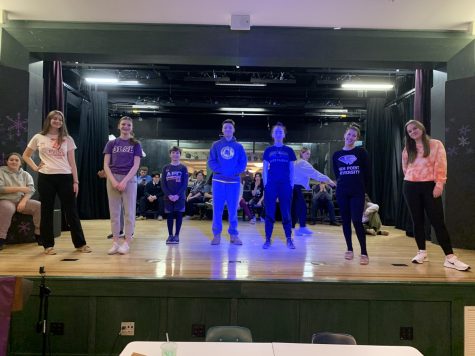Book Review: Left to Tell
March 9, 2015
As once stated by Mahatma Gandhi, “The weak can never forgive. Forgiveness is the attribute of the strong.” One of the most difficult challenges in human nature is forgiving someone who has wronged you. The story of Immaculée Ilibagiza, a Rwandan holocaust survivor, is powerful enough to turn the hearts of even the most bitter and vengeful victims. Her book, Left to Tell, is a must-read for everyone because Immaculée describes her journey of overcoming her hatred for all those who murdered her friends, family, and neighbors, and forgiving them despite what they have done to her.
Immaculée grew up like any other Rwandan girl, but one thing separated her from friends, neighbors, and classmates: she was a Tutsi not a Hutu. Though at the time it was nothing more than a label of one’s heritage, in 1994 it became a declaration of life or death; murdered or murderer. After the Rwandan holocaust began, Immaculée found refuge, along with seven other Tutsi women. However, her younger brother, Vianney, and another young man were sent out of the house because the pastor said he could not hide the men, too. Hutu killers were everywhere, and being sent out of the house was almost a death sentence itself for any Tutsi. Through Imaculée’s personal description of the atrocities, the reader can share in her emotional and physical terror.
Immaculée and the other women lived in hiding for 91 days while the genocide raged on all around them. Although they were slightly protected by the mercy of the local pastor, the women were not spared from hardships. During those 91 days living in the bathroom, their faith was tested. In her book, Immaculée tells of many instances where the devil filled her head with thoughts of despair, and how she would pray to God asking for His protection. During a search of the house, Immaculée prays, “Why do You expect the impossible from me? How can I forgive people who are trying to kill me, people who may have already slaughtered my family and friends? It isn’t logical for me to forgive these killers. Let me pray for their victims instead, for those who’ve been raped and murdered and mutilated. Let me pray for the orphans and widows…let me pray for justice.” The reader is able to relate to the emotional turmoil of Immaculée as she struggles to forgive their abusers.
Left to Tell is not only an informative personal, historical account, but a powerful inspiration as the reader experiences Immaculée’s transition to forgiveness. Through prayer, Immaculée gains an intimate relationship with God, which sustains her throughout the genocide and her life afterwards. From this personal account of Immaculée Ilibagiza, we can learn valuable lessons of love and forgiveness. Her extraordinary journey is an inspiration to all and an example of the capability of human nature to forgive even what seems unforgivable.






